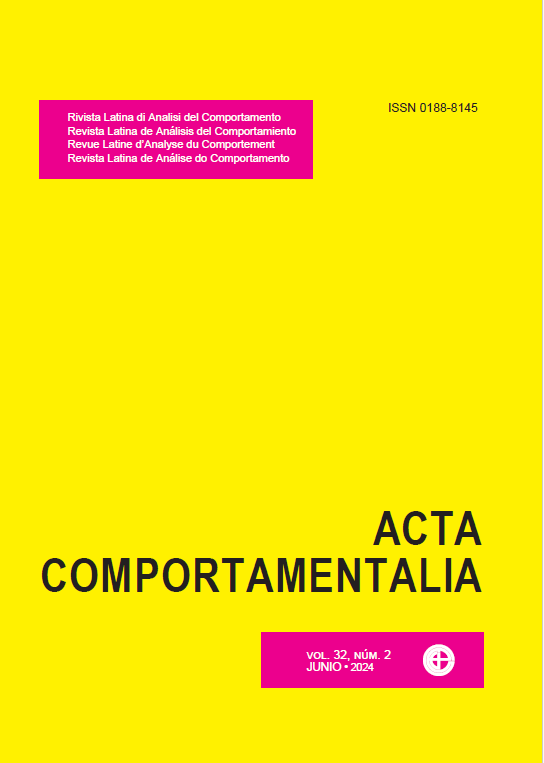Contingencies as Models of Causation in Psychopathology
DOI:
https://doi.org/10.32870/ac.v32i2.88355Keywords:
associative learning, Contingency Learning Theory, causal mental models, individual differences, computational psychiatryAbstract
Contingency Learning Theory (CLT) provides a computational background to develop models to understand causality. CLT provides a unifying account of Pavlovian and instrumental learning, and is used to understand mechanism underlying psychopathologies rather than simply describing symptomology (Byrom & Murphy, 2018). In this manuscript we present an overview of models and methods used within this theoretical perspective, and we describe applications in experimental psychopathology. In the first section, we present CLT in two mathematical forms: an analytical form (Delta-P rule) and computational form (or process-based; e.g., Rescorla-Wagner Model). In the second section, we describe two experimental methods used to study contingency learning in humans: the rapid-streaming trial procedure, which relies on perception and observation, and the free-operant, which involves participants’ instrumental and agentic responding. The former is a passive model that considers the study of contingency perception and the psychophysics of learning. The latter is an active method where participants use their own actions to control possible outcomes, this allows the study of the sense of agency and illusion of causality. Finally, in the third section, we provide examples of how CLT is used to understand individual differences related to affect (depression dimension) and schizotypy (psychosis dimension). People with higher depressive scores tend to be protected against optimist control biases, i.e., ‘depressive realism’, but may show insensitivity to their control. In comparison, people with high schizotypy scores or with psychosis are less sensitive to the correlation between action-outcome or the causal powers of their actions. With this work we aim to link CLT −a formalized theory based on the principles of experimental behaviour analysis− and its applications in experimental and computational psychopathology. We believe this would improve the tools to understand transdiagnostic features of distinct psychiatric conditions in which causal understanding is central.
Downloads
Downloads
Published
How to Cite
Issue
Section
License

<a rel="license" href="http://creativecommons.org/licenses/by-nc-sa/4.0/"><img alt="Licencia de Creative Commons" style="border-width:0" src="https://i.creativecommons.org/l/by-nc-sa/4.0/88x31.png" /></a><br />Este obra está bajo una <a rel="license" href="http://creativecommons.org/licenses/by-nc-sa/4.0/">licencia de Creative Commons Reconocimiento-NoComercial-CompartirIgual 4.0 Internacional</a>.






